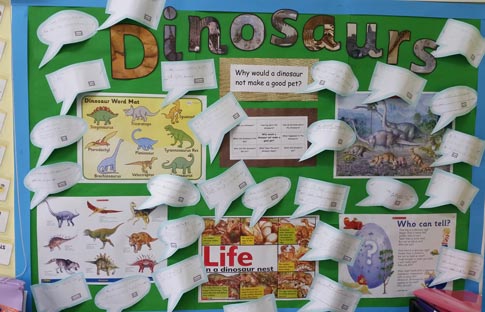Singapore Ranks First, UK Ranks Twentieth
In the most extensive research into global education practices, Asian countries have come out on top in a poll based on maths and science skills amongst fifteen year-old students. The OECD (Organisation for Economic Co-operation and Development), set out to test the link between a country’s education system and the gross domestic product (GDP) of that country. The better educated the workforce the greater propensity for that country’s economy to grow and for wealth to be created.
Students in Seventy-Six Countries were Tested
Picture credit: Everything Dinosaur
For educational products, visit Everything Dinosaur’s website: Everything Dinosaur.
The top five places in the rankings were all taken by Asian countries. Singapore, a country with an extremely well-respected education system was ranked first, second was Hong Kong, then South Korea, Taiwan and Japan.
The lowest ranked countries in this OECD survey were, unsurprisingly, some of the poorest and least developed countries, although South Africa was rated very low and propping up the table, coming last of all was Ghana.
The survey compiled by Eric Hanushek (Stanford University) and Ludger Woessmann (Munich University), was commissioned by the OECD in preparation for a global education conference due to take place in South Korea next week.
The United Nations is going to set a target for raising global education standards by 2030. The country rankings are based on an amalgamation of international assessments, including the OECD’s Pisa tests, the TIMSS tests run by United States-based academics and TERCE tests from the Latin America countries. In this survey, both developed and developing countries have been assessed against the same criteria, this allows for accurate comparisons irrespective of a country’s economic status.
Science and Maths Tests
One notable absentee from the OECD report is China but with a third of the world’s countries surveyed the study reaffirms the long held belief that Asian countries such as South Korea and Singapore have excellent education systems, especially when it comes to maths and the science disciplines.
Andreas Schleicher (Education Director of the OECD) stated:
“This is the first time we have a truly global scale of the quality of education. The idea is to give more countries, rich and poor, access to comparing themselves against the world’s education leaders, to discover their relative strengths and weaknesses, and to see what the long-term economic gains from improved quality in schooling could be for them.”
Whilst it may not be possible to mine the data to extract any variations between England, Scotland, Northern Ireland and Wales, which between them do have different national curricula, this study provides a useful benchmark. The UK results do show that approximately 20% of UK school leavers have only basic maths skills and only a limited knowledge of science. Academics propose that if basic education levels could be improved in the United Kingdom then this would result in a much more skilled and capable workforce leading to a increase in the GDP and everyone’s economic welfare.
For information on how Everything Dinosaur helps schools and home educators: Email Everything Dinosaur.


